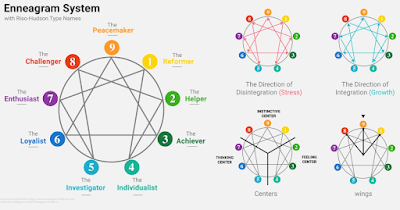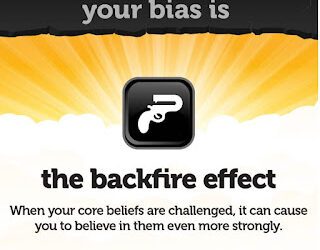I was not intending to write another article on personality after my Enneagram articles, but I had a few people ask me questions about personality in general, so I thought it would be good to answer those questions since my mind is already on the topic and the research is fresh in my mind. Considering the number of personality tests available, it’s clearly a topic that interests people. I think there is a lot of good that can come from knowing more about your personality, but there’s also a huge risk of oversimplifying the results and using them incorrectly. Hopefully I can shed some light on personality and help you transcend the myths of pop-psychology.
Personality and its Limits
Personality simply describes a person’s normal tendencies. Think of it like handedness. Most people have a dominant hand, which has better dexterity and they are more comfortable using, but they can and do use their other hand. In some cases, people are forced to use their non-dominant hand and they eventually become just as good with it as their dominant hand (in even more rare cases, people can learn to use their feet as hands!). Personality is similar because it describes the patterns of thinking or behaving that we are comfortable with and do reflexively.
This may sound odd, but you are not your personality. I mean two things by this: first, whatever your personality is, you are not destined to be stuck with it or conform to it. Personality can and does change and even if it doesn’t, you can act in ways that are not in line with your personality (in fact, you should go against it sometimes). Second, personality does not include several other important factors that make up who a person is such as intelligence, religious beliefs, age, gender, socioeconomic status, hobbies, family dynamics, cultural norms, and more.

There are several different personality tests. The two that are typically considered the best are the MMPI and tests using the five factor model (aka the big five). Other tests are rarely, if ever used for scientific research because they lack the reliability and validity of these two tests (this includes the MBTI and Enneagram). The MMPI is used more in clinical settings, but since it is expensive and requires certification, big five tests are much more common for scientific research.
Big five models divide personality into five separate factors (and sometimes as many of six sub-factors), Openness to experience, Conscientiousness, Extroversion, Agreeableness, and Neuroticism (the acronym OCEAN can help you remember it). Rather than stuffing people into a single personality type, a score is given for each factor, which gives a more accurate and comprehensive description of personality.
Here’s the thing that people often struggle with about personality though: it’s not that great of a predictor of behavior for most situations, especially in situations that are not routine. Our intuition tells us that if we just know our own personality, or someone else’s, we will know exactly what they will think, do, or believe, but that just isn’t true. I struggled with this for a long time as an undergrad and wasn’t convinced otherwise until I read study after study after study in social psychology that showed people tend to act pretty similar in most situations.
Personality tests are often used by businesses to try to predict employee success or place them in the correct positions, but they actually aren’t very good at this. The MBTI website explicitly states that the test should not be used to “counsel a person to, or away from, a particular career, personal relationship or activity based solely upon type information.”
Let’s be clear, personality does make a difference in just about every situation, but it’s not the most important factor. According to Lee Ross and Richard Nisbett in their book The Person and the Situation, personality factors only explain up to 30% of behavior in any situation, and that’s the maximum. It’s usually much lower than that.
Personality is useful for helping people understand their general tendencies, which can be beneficial for overcoming weakness or issues and taking advantage of our strengths. For instance, someone who is high in conscientiousness is probably very productive and organized, but they’re also likely to get stressed out (especially if also high in neuroticism) by imperfection and micro-manage people. Someone low in conscientiousness is probably perpetually late or viewed as a slacker, but they are also likely creative and are comfortable in unstructured situations.
Extreme scores on any category are likely to cause issues in a person’s life and may be a reason to seek counseling from a licensed therapist or psychologist.
Personality for Apologetics & Evangelism?
Since personality is not the major contributor to how people make decisions or respond in unfamiliar situations, there is almost no value in it for apologetics and evangelism. You don’t need to categorize someone in order to speak to them. In fact, trying to figure out their personality type is likely to distract you from what is more important. People will typically tell you what is important to them, so just listen carefully to what they say without psychoanalyzing them or constantly trying to refute every word they say.
There are perhaps two valid uses of personality for apologetics and evangelism. First is to simply be aware that people are vastly different, so whoever you are talking to, they are likely very different from you in significant ways. Keeping this in mind, we should recognize that not everyone will share our conversion experience. Regardless of what led to your conversion, or whatever your interests are, other people are likely to be different so don’t try to push knowledge or experiences on people just because it worked for you. The other potential use is as an ice-breaker or conversation starter because personality is an interesting topic to many people and everyone is the expert on their own personality.
Conclusion
Outside of evangelism and apologetics, personality can offer significant benefits to individuals for self-awareness and personal growth. However, it will still take hard work to reap the benefits, and in many cases, it will require the assistance of a licensed therapist or psychologist (not a biblical counselor or a pastor).
Even though personality may not be very fruitful for evangelism and apologetics, psychological sciences can inform our methods so they are more effective. In my next article, I will explain the real reason why apologetics is not as effective as it should be, then I will follow-up with articles on methods for overcoming this gargantuan barrier.
Works Cited
Ross, L., & Nisbett, R. E. (2011). The person and the situation: Perspectives of social psychology. Pinter & Martin Publishers.



